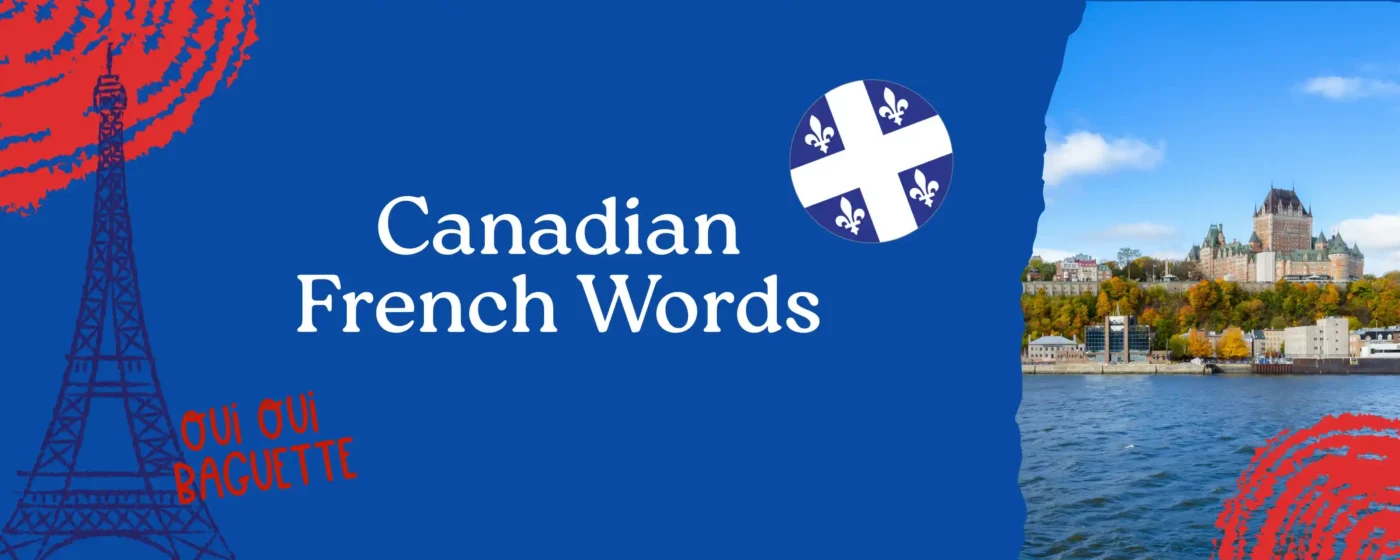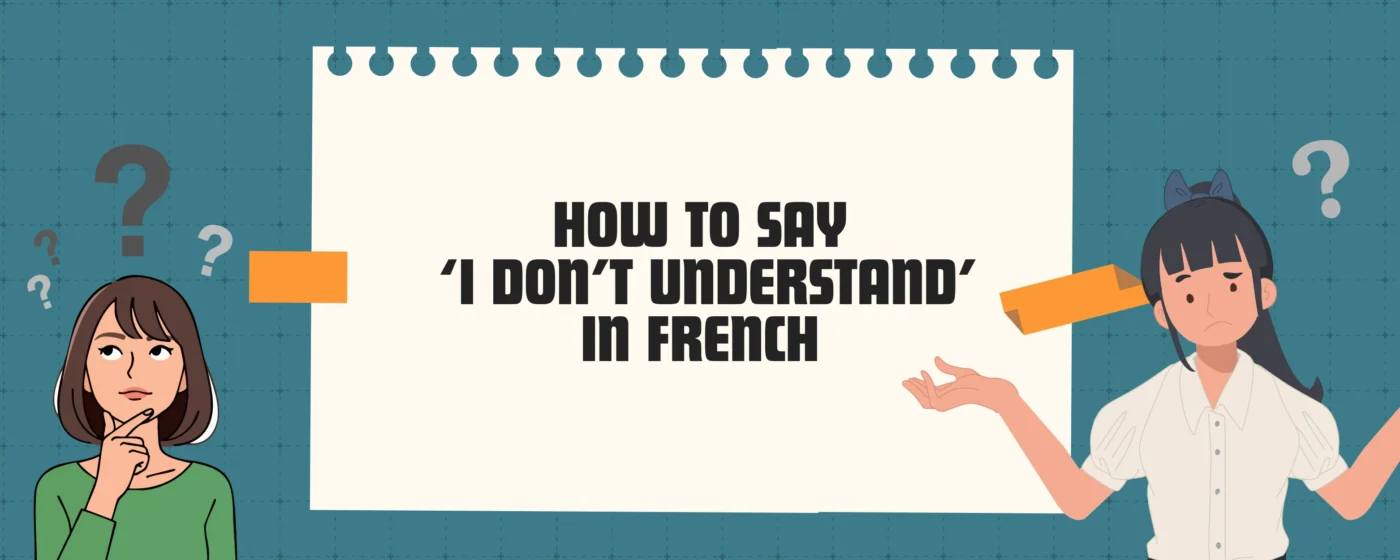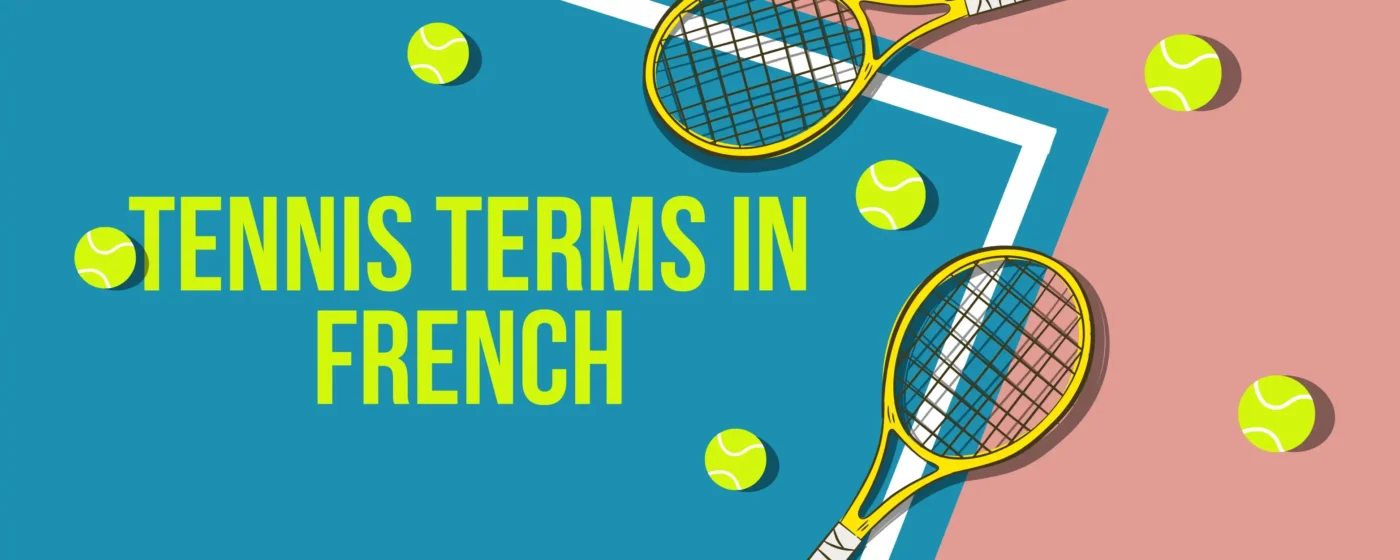20 Most Funny and Hilarious French Jokes

Humor is universally understood, acknowledged and appreciated. No matter where people come from – a good laugh brings us all closer together. And when it comes to French jokes, there’s a special charm about them: it’s their witty wordplay, clever puns, and cultural quirks make them unforgettable. These little gems don’t just spark laughter, they also sneak in useful French expressions and vocabulary. In this article, you’ll enjoy a collection of funny French jokes, along with their meanings and explanations. Get ready to laugh, learn, and boost your French skills all at once!
Key Takeaways
- Learning French jokes adds fun to your language practice and helps you understand cultural humour while improving your vocabulary naturally.
- French wordplay and punchlines often rely on pronunciation or double meanings, so jokes make you more aware of language nuances.
- Sharing light jokes in French makes conversations more engaging and helps you connect with native speakers in a relaxed setting.
- Practising jokes aloud boosts your confidence with pronunciation and makes your spoken French sound more natural and fluent.
Why Are French Jokes Unique and Fun?
What makes French jokes (blagues) different from jokes in other languages, you might ask! Well, French humor is known for its sharp wit, clever wordplay, and situational comedy that often pokes fun at everyday life. A key element is the “jeu de mots” (wordplay), where similar-sounding words or double meanings create amusing twists. These puns are particularly common in French jokes, making them both entertaining and educational. For French language learners, these words can offer a fun way to notice subtle differences in pronunciation, spelling, or context. By exploring these jokes, French learners can naturally expand their vocabulary and cultural understanding at the same time.
20 Best French Jokes
1. « Écoute », dit la maman à sa petite fille, « si tu es sage, tu iras au ciel, et si tu n’es pas sage, tu iras en enfer. »
– « Et qu’est-ce que je dois faire pour aller au cirque ? »
Translation:
“Listen,” says the mother to her little girl, “if you’re good, you’ll go to heaven, and if you’re naughty, you’ll go to hell.”
– “And what do I have to do to go to the circus?”
Explanation:
This joke plays on the child’s innocent logic. Instead of worrying about heaven or hell, she’s more interested in something fun and immediate – the circus. It highlights the humor in children’s literal thinking, where their priorities differ greatly from adults.
2. Julien demande 10 euros à son père.
– C’est pour quoi faire ?
– Pour donner à une vieille dame !
– C’est très bien de vouloir l’aider ! Et où est cette vieille dame ?
– Là-bas, elle vend des glaces !
Translation:
Julien asks his dad for 10 euros.
– “What for?”
– “To give to an old lady!”
– “That’s very kind of you! Where is she?”
– “Over there, selling ice cream!”
Explanation:
This joke plays on expectations. The father thinks Julien wants to help a poor old woman, but instead, the “old lady” is just a vendor. The humor lies in the twist between generosity and a child’s real motive: wanting ice cream.
3. Pierre raconte une histoire à Paul.
Pierre: Hier, en allant chez ma grand-mère, j’ai vu des chevals.
Paul: Des chevaux !
Pierre: Tais-toi, c’est moi qui raconte.
Translation:
Pierre tells a story to Paul.
Pierre: “Yesterday, on my way to my grandma’s, I saw some chevals.”
Paul: “Chevaux!”
Pierre: “Shut up, I’m the one telling the story.”
Explanation:
The humor comes from Pierre’s stubbornness. Instead of correcting his mistake (“chevals” instead of “chevaux”), he insists on being right simply because it’s his story. This reflects children’s playful defiance when corrected, making it both linguistic and situational humor.
4. C’est l’histoire de deux pommes de terre.
Une d’elles se fait écraser et l’autre s’écrie :
– Oh purée !
Translation:
It’s the story of two potatoes.
One gets crushed and the other shouts:
– “Oh purée!”
Explanation:
This is a classic pun. Purée means “mashed potatoes” in French, but it’s also an exclamation like “Oh no!” The humor lies in the double meaning: the crushed potato literally becomes purée, while the other reacts with surprise.
5. Qu’est-ce qui est petit, rond, vert, et qui monte et qui descend ?
– Un petit pois dans un ascenseur.
Translation:
What is small, round, green, and goes up and down?
– A pea in an elevator.
Explanation:
This riddle-like joke uses absurd imagery: a tiny pea riding an elevator. The humor comes from mixing the unexpected (a vegetable) with a very ordinary action (going up and down). It’s silly, visual, and perfect for younger French learning audience.
6. Pourquoi les plongeurs plongent-ils toujours en arrière et jamais en avant ?
– Parce que sinon ils tombent dans le bateau !
Translation:
Why do divers always dive backwards and never forwards?
– Because otherwise they’d fall into the boat!
Explanation:
This is situational humor. The setup suggests a technical diving reason, but the punchline is absurdly logical: diving forward would land them right back in the boat. It’s funny because it flips expectations with simple reasoning.
7. Que dit une noisette quand elle tombe à l’eau ?
– Je me noix !
Translation:
What does a hazelnut say when it falls into the water?
– “I’m drowning!” (Je me noie).
Explanation:
This joke plays on a pun: noix (nut) and noyer (to drown). The wordplay between “nut” and “drown” creates a silly connection. French learners will benefit by recognizing pronunciation similarities and vocabulary differences.
8. Pourquoi les squelettes ne se battent-ils jamais ?
– Parce qu’ils n’ont pas de tripes !
Translation:
Why don’t skeletons ever fight?
– Because they have no guts!
Explanation:
This is a bilingual pun: “avoir des tripes” in French means both literally “to have guts” and figuratively “to have courage.” Skeletons, lacking organs, also lack bravery. The double meaning makes it clever and easy for learners to remember.
9. Pourquoi les poissons détestent-ils l’ordinateur ?
– Parce qu’ils ont peur de la souris !
Translation:
Why do fish hate computers?
– Because they’re afraid of the mouse!
Explanation:
The humor comes from double meaning. A “souris” is both a computer mouse and the small animal. The idea of fish being scared of a mouse is silly, but the pun makes it work. This joke helps learners connect vocabulary across contexts.
10. Qu’est-ce qu’un citron pressé ?
– Un citron qui attend son bus !
Translation:
What is a “pressed lemon”?
– A lemon waiting for its bus!
Explanation:
In French, citron pressé means lemonade (literally “squeezed lemon”). But here, the meaning is twisted into an image of a lemon under pressure—waiting impatiently for the bus. It’s a simple pun that shows early French learners how words can take on multiple interpretations.
Struggling with Vocab? Let's Fix It!
Join our classes and let our teachers guide you to build a vocabulary that sticks!
11. Quel est le comble pour un électricien ?
– De ne pas être au courant.
Translation:
What’s the ultimate irony for an electrician?
– Not being up to date.
Explanation:
The pun plays on au courant, which means both “up to date” and “with the current (electricity).” For an electrician, not being “au courant” is funny because it mixes literal and figurative senses. A perfect pun for language learners.
12. Pourquoi les livres ont-ils toujours chaud ?
– Parce qu’ils ont beaucoup de couvertures.
Translation:
Why are books always warm?
– Because they have lots of covers.
Explanation:
This joke plays on the word couvertures, which means both “book covers” and “blankets.” The pun creates an amusing mental picture of books keeping themselves warm with blankets. It’s simple, visual humor and a good vocabulary-builder.
13. Quel est le comble pour un jardinier ?
– De raconter des salades.
Translation:
What’s the ultimate irony for a gardener?
– Telling lies.
Explanation:
The phrase raconter des salades means “to tell lies” in French. For a gardener, who literally works with salads and vegetables, the expression becomes a funny play on words. This teaches learners a useful idiom while making them laugh.
14. Qu’est-ce qu’un chat qui travaille à l’école ?
– Un maître-chat !
Translation:
What do you call a cat who works at a school?
– A schoolteacher-cat!
Explanation:
This pun relies on combining maître d’école (schoolteacher) with chat (cat). The result is a silly hybrid word, maître-chat. The humor is childlike and playful, showing how French often uses word combinations for comic effect.
15. Pourquoi les fantômes aiment-ils aller à l’école ?
– Parce qu’ils sont forts en spirit !
Translation:
Why do ghosts like going to school?
– Because they’re good in “spirit”!
Explanation:
This pun works on the word esprit, which means both “spirit” (ghostly essence) and “wit” or “intellect.” Ghosts being “good in spirit” makes sense both literally and figuratively, creating a clever double meaning.
16. Que fait une fraise sur un cheval ?
– Tagada, tagada !
Translation:
What does a strawberry do on a horse?
– Tagada, tagada!
Explanation:
This joke is referring to the French candy “Tagada” (a strawberry candy). It imagines a strawberry riding a horse, making a “galloping” sound. The humor comes from the absurdity and playful word association.
17. Pourquoi les oiseaux ne prennent-ils jamais le métro ?
– Parce qu’ils ont déjà des ailes !
Translation:
Why don’t birds ever take the subway?
– Because they already have wings!
Explanation:
This joke relies on literal logic that since birds can fly, they don’t need public transport. It’s simple, visual, and funny for beginners learning animals and everyday verbs.
18. Que dit une vache quand elle voit un tracteur ?
– “Moo-tivation !”
Translation:
What does a cow say when it sees a tractor?
– “Moo-tivation!”
Explanation:
This pun combines “moo” (the cow’s sound) with “motivation.” The humor comes from blending animal sounds with English-derived French words, showing playful language mixing.
19. Qu’est-ce qu’un chien qui fait de la magie ?
– Un labracadabrador !
Translation:
What is a dog that does magic?
– A Labracadabrador!
Explanation:
A pun on “abracadabra” and “Labrador.” The joke is visual and silly – perfect for children or language learners enjoying wordplay.
20. Pourquoi les poules n’ont-elles pas de seins ?
– Parce que les coqs ont des œufs !
Translation:
Why don’t hens have breasts?
– Because roosters have eggs!
Explanation:
This joke plays on the literal versus figurative idea of anatomy and egg-laying. The punchline is unexpected and nonsensical, making it funny.
Expand your French vocabulary with funny French words and phrases that will make your language learning both enjoyable and memorable.
How These Jokes Can Help You Learn French?
Learning French through humor is one of the most enjoyable and effective ways to remember new French words and expressions. When we laugh, our brain makes stronger connections, which means jokes are easier to recall than those boring long lists of vocabulary. Many French jokes rely on idioms, and double meanings, so by understanding them, you will naturally expand your vocabulary and recognize how words can be used in different contexts. Whether it’s irony, wordplay, or everyday situations, these jokes show how the French think and communicate. By sharing a funny pun or riddle, you don’t just practice words, you also connect with people in a warm, natural and authentic way. Using jokes in conversations can make you sound more fluent and confident while breaking the ice. So don’t just study French – laugh with it, play with it, and you’ll remember it much more easily!
Quick French Phrases to Make Your Jokes Even Funnier
Here are some short French expressions you’ll often hear in jokes or funny stories. They’re simple, playful, and great for sounding natural among your French friend groups!
1. “Oh là là !” – An exclamation for surprise, shock, or amusement.
Example: Oh là là, quelle bêtise ! (“Oh dear, what nonsense!”)
2. “Zut !” – A mild way to say “Darn!” or “Shoot!”
Example: Zut, j’ai oublié mes clés !
3. “Mince !” – Another light exclamation, similar to “Oh no!”
Example: Mince, il pleut encore !
4. “Oh purée !” – A funny alternative to “Oh no!” (literally “Oh mashed potatoes!”).
Example: Oh purée, j’ai raté le bus !
5. “Bof !” – Expresses indifference, like “Meh.”
Example: Tu aimes ce film ? – Bof, pas trop.
6. “Ha ha !” / “Hi hi !” – French onomatopoeia for laughter.
Example: Ha ha, c’est trop drôle !
These little words will make those jokes livelier and help you sound more authentic in French conversations!
End Summary
French jokes aren’t just for laughs – they’re little language lessons in disguise! Every pun and riddle will give you new vocabulary, cultural quirks, and a dose of everyday French wit. The best part? You remember them far more easily than long word lists because they make you smile. Each time you share one, you sound more natural (and a lot more fun) in conversation. So why stop here? Keep exploring the world of French humor, where even potatoes can cry “Oh purée !” and grammar mistakes become punchlines. Make jokes your secret weapon: a daily laugh, a daily lesson. Practice French every day with La Forêt French Class, keep your sense of humor handy with our blogs, and you’ll see progress without even realizing it. After all, who said studying couldn’t be funny?
Frequently Asked Questions
1. How do French jokes help with pronunciation?
Ans: Many puns rely on similar sounds, so repeating them sharpens your ear and tongue.
2. What’s the French version of a “dad joke”?
Ans: They’re called blagues carambar. These are silly jokes printed on Carambar candy wrappers, loved (and groaned at) by generations of kids.
3. Do kids in France tell riddles like “Knock knock” jokes?
Ans: Yes, but instead of “Knock knock,” they use devinettes (riddles).
For example: Qu’est-ce qui est jaune et qui attend ? Jonathan !
4. What’s the shortest French joke?
C’est l’histoire d’un schtroumpf. Il tombe et se fait un bleu. (“It’s the story of a Smurf. He falls and gets a bruise/turns blue.”)




